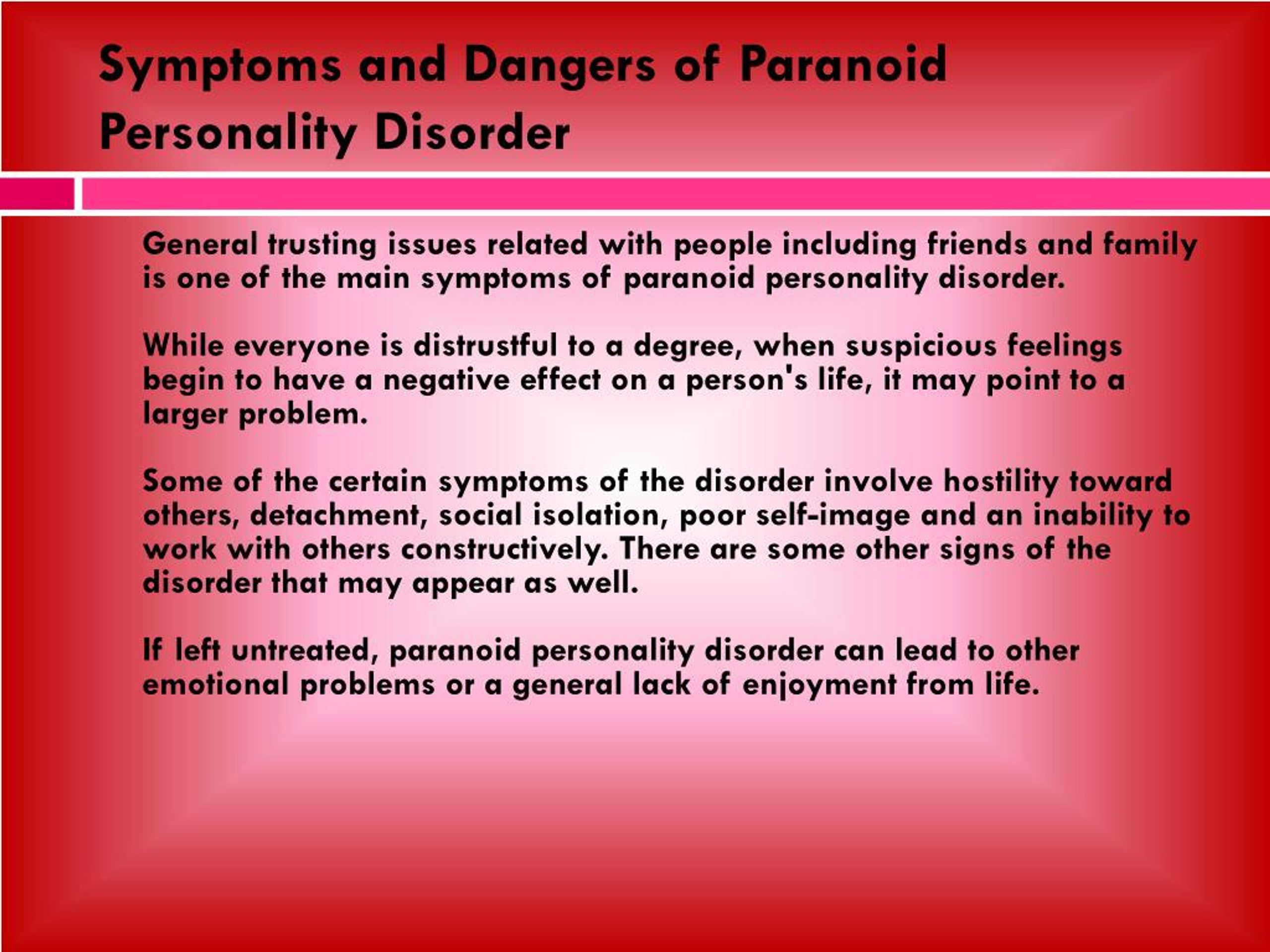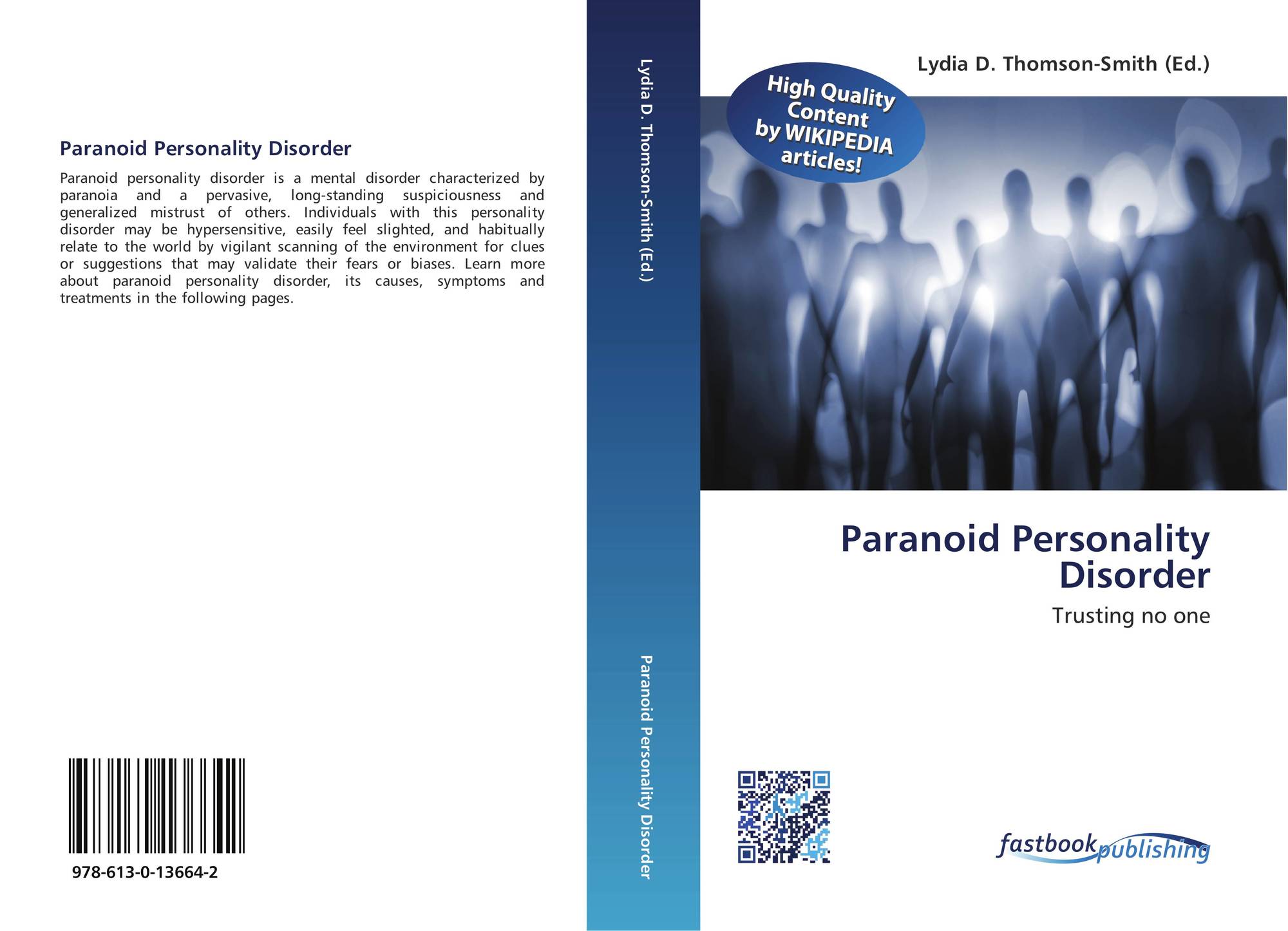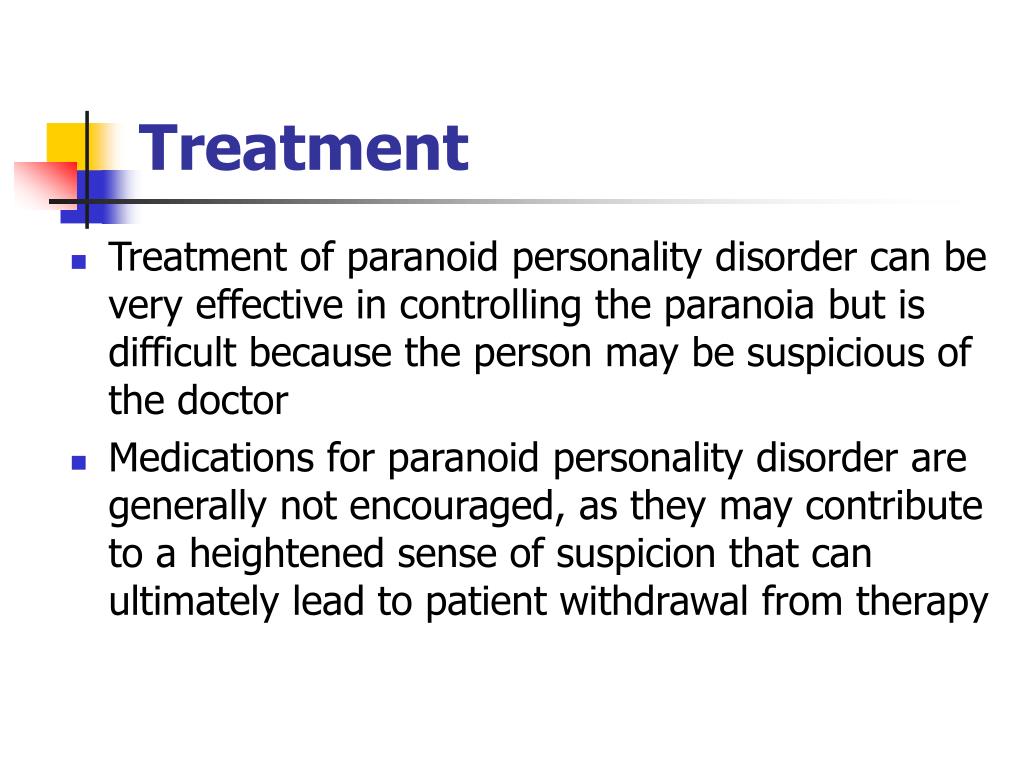

The Food and Drug Administration (FDA) have not yet approved any drug treatments for PPD. However, doctors may sometimes consider the following treatment options for people with PPD. No clinical trials are available for PPD because it is not currently a high priority for clinicians, and there is a lack of volunteer participants.

Researchers have only recently begun to study PPD, so doctors know little about treating the condition.

Perceiving attacks on their character and reputation that are unapparent to others and acting aggressively in response.Interpreting remarks or events as demeaning or threatening without justification.Avoiding confiding in others because of a fear that people will use any information against them.Worrying about loyalty and whether they can trust their family, friends, or co-workers.Suspecting that others are exploiting, harming, or deceiving them.Healthcare professionals will only diagnose a person with PPD if they fulfill at least four of the following criteria: According to the DSM-5, people with such feelings will interpret others’ motives as malicious and spiteful. The DSM-5 describes PPD as a deep distrust and suspicion of others. A doctor will assess a person to see whether they satisfy the criteria for PPD that the DSM-5 outlines.


 0 kommentar(er)
0 kommentar(er)
